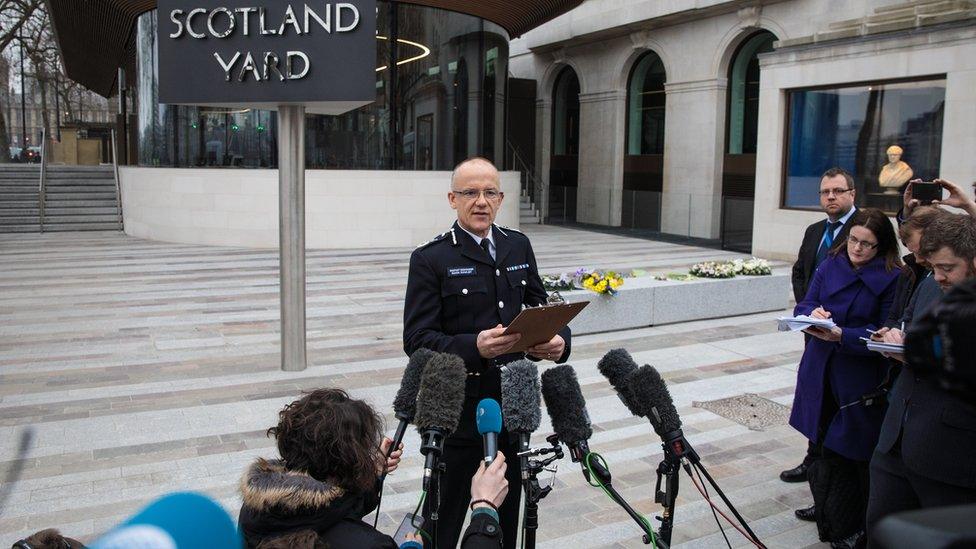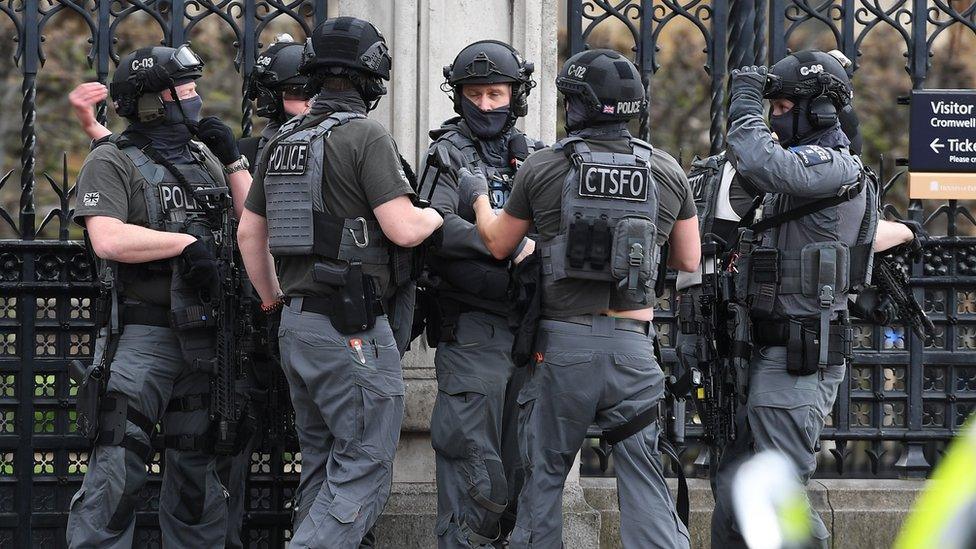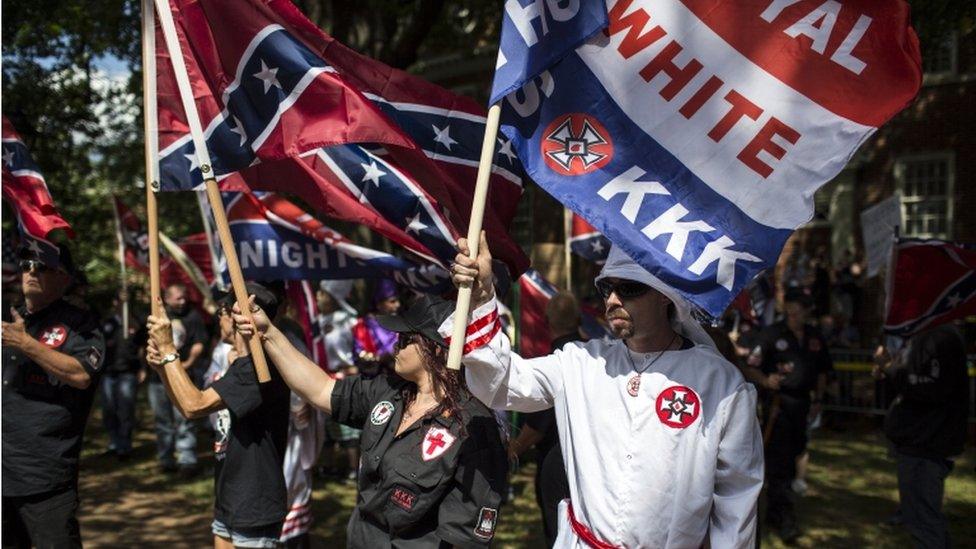Far-right terror threat 'growing' in UK as four plots foiled
- Published
Mark Rowley said four far-right terror attacks were foiled last year
The retiring head of counter-terrorism policing in the UK has warned of the growing threat of far-right terrorism.
Assistant Commissioner Mark Rowley, who will retire from the Met Police next month, said four extreme-right terror plots were disrupted last year.
Ten Islamist-inspired plots have been foiled since March last year, he added.
In a speech made at Policy Exchange, the Met Police's Mr Rowley also warned that far-right extremists are working in similar ways to Islamist extremists.
He said they create intolerance, exploit grievances, and generate distrust of state institutions.
One of the four alleged far-right plots disrupted was that of white supremacist Ethan Stables.
Earlier this month, he was convicted of plotting an axe and machete attack on a gay pride event at a pub in Barrow.
Mr Rowley said: "Islamist and right-wing extremism is reaching into our communities through sophisticated propaganda and subversive strategies creating and exploiting vulnerabilities that can ultimately lead to acts of violence and terrorism.
"Ten conspiracies of an Islamist nature were stopped since the Westminster attack.
"And I can tell you today that over the same period police have been able to prevent a further four extreme, right-wing inspired plots in the UK."
He said it was "important we make these figures public in order to illustrate the growth of right-wing extremism".
Referring to the banned group National Action, he said: "For the first time we have a home-grown proscribed white supremacist, neo-Nazi terror group, which seeks to plan attacks and build international networks."
Live investigations
Last year, the security service MI5 joined the fight against the right-wing terrorist threat.
There are currently more than 600 live investigations and more than 3,000 people of interest at any one time.
While they have not been involved directly in terrorism, he singled out Tommy Robinson, who founded the English Defence League (EDL), and Jayda Fransen, the deputy leader of Britain First, as voices from the far right who stir up tensions.
Mr Rowley told the BBC: "In the noise and focus on the global threat, and what we've wrestled with with Daesh [the Islamic State group], I don't think the change and growth in extreme right-wing terrorist threat has been explained or described well enough - and that's one of the things I wanted to do."
Aside from the attempted gay pride attack in Barrow, the other three alleged plots that were foiled last year are yet to come to trial.
One allegedly involved a neo-Nazi buying a machete with the intention of murdering the Labour MP Rosie Cooper.

Mr Rowley oversaw the response to five terror attacks in the UK last year, including at Westminster
Mr Rowley said the ability of extremists and terrorists of all kinds to "ply their trade" through the internet was of great concern.
He urged social media companies to do more to combat extremism.
"Many of them tried to argue for some that they simply provide pipes, they have no editorial responsibilities," he said.
"That argument was always in my view nonsense. They've stopped using that argument. They've started to try and take some responsibility.
"I think to be fair to them, they can't exert editorial control over everything that is published on their sites.
"But they can exert a massive amount of control both on the day-to -ay management of it, and I think more in the future about how they design their platforms and their operating systems and their products.
"Their products shouldn't simply be designed for maximising profit, they should be designed with a parallel objective around public safety."
'Throw away the key'
Mr Rowley was also asked what should happen to two Londoners suspected of being members of an Islamic State cell - dubbed "the Beatles" by Western media because of their British accents.
The gang was notorious for kidnapping Western hostages and filming their murders - often by beheading.
Alexanda Kotey and El Shafee Elsheikh were captured in Syria in January and are accused of links to a string of hostage murders in Iraq and Syria.
Mr Rowley said: "The people who have done the most ghastly things overseas, the ones who don't fight to the death, we would all like to see them never able to do anyone any harm ever again.
"Locking them up and throwing away the key would be a great idea."
Mohammed Emwazi, better known as "Jihadi John", was a suspected member of the cell before his death.
- Published22 September 2017

- Published13 August 2017

- Published13 February 2018